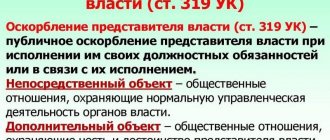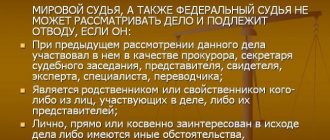Home / Situations
Back
Published: March 14, 2020
Reading time: 7 min
1
1554
In everyday life, we quite often come across profanity, which is used by others. Its use is an illegal act, since it violates the honor and dignity of a particular person and expresses disrespect for the moral and ethical standards that operate in society. The use of obscenities is unacceptable in written or oral form.
Few people know that swearing can result in not only social reprimand, but also administrative liability in the form of a fine. According to current legislation, swearing is classified as hooliganism.
- What is checkmate
- What is the offense of using obscene language in a public place?
- Administrative responsibility for swearing in a public place
- Swearing at a specific person
- Insulting a government official while performing his duties
- The procedure for proving a violation and bringing to justice for obscene language. What difficulties may arise?
- Initiating and proving cases of using profanity in a public place
What is checkmate
Obscene language, or swearing, is part of the vocabulary of the Russian language, which contains obscene and rude expressions. Mat is often used in the position of representatives of the social bottom - citizens who are prone to antisocial behavior. Swearing can be used without address, and then it refers to a spontaneous reaction to the resulting stress, a kind of emotional interjection. But it can also be used when trying to insult another person.
Swearing is expressions that are condemned by the public and insult the interlocutor, belittling his dignity.
What is the offense of using obscene language in a public place?
Swearing in itself is not prohibited and is not an offense. But this is relevant as long as the swearing does not affect the rights of other persons. In the latter case, swearing becomes an administrative offense. The norms of the Code of Administrative Violations (CAO) prosecute swearing in a public place and swearing that is used to insult a person.
A violation is swearing not only verbally, but also in the media, since in this case it can violate the rights and legitimate interests of citizens and a wide audience of readers.
Responsibility for swearing comes on the basis of the following norms of the administrative code:
- Article 20.1. Petty hooliganism.
- Article 5.61. Insult.
Punishment for swearing includes a fine of up to 5 thousand rubles. Compensation for harm is made in monetary form, and its amount is determined by the court depending on the degree of moral suffering caused, as well as the degree of guilt of the offender.
Administrative responsibility for swearing in a public place
According to the Administrative Code, swearing in a public place is regarded as petty hooliganism. Based on Part 1 of Art. 20.1 of the Administrative Code, petty hooliganism is understood as a violation of public order, which is expressed in disrespect for society and is accompanied by pestering people, obscene language, destruction and damage to property. Harassment in a public place is characterized by intrusive and impudent actions of hooligans who cause moral and physical harm to a stranger.
Subjects of the Russian Federation are given the opportunity to resolve liability for swearing on their own. That is, such entities have the right to introduce regional laws that will increase penalties for obscene language.
According to the norms of Part 1 of Art. 20.1 of the Code of Administrative Offences, swearing in a public place threatens the violator with an administrative fine in the amount of 500-1000 rubles. or administrative liability in the form of arrest for up to 15 days.
If, in addition to obscene language, a person was involved in disobedience to the legal demands of a government representative or a person performing law enforcement duties, then a fine under Part 2 of Art. 20.1 of the Code of Administrative Offenses increases to 1-2.5 thousand rubles. These are, for example, situations where a law enforcement official tried to reason with a hooligan, but received a portion of obscene insults directed at himself. Under this provision, administrative arrest for up to 15 days is also possible.
For the dissemination on the Internet of information expressed in an indecent form that offends human dignity and morality, under Part 3 of Art. 20.1 of the Administrative Code faces an administrative fine of 30-100 thousand rubles. If this offense is committed again, it will result in a fine of 100-200 thousand rubles. according to Part 4 of Art. 20.1 Code of Administrative Offences. If a person commits these actions more than twice, then the penalties for him will be 200-300 thousand rubles.
About everything specified in paragraphs 3-5 of Art. 20.1 of the Administrative Code, violations must be notified to the prosecutor's office within 24 hours.
24.08.: 2502
Responsibility of minors for obscene language
The problem of obscene language is especially acute in adolescence, because older children associate it with independence, with disobedience to prohibitions, and in general, swearing is a symbol of adulthood. This is also a tribute to speech fashion, and imitation of idols.
Abuse and rudeness hide weakness and vulnerability, which are unacceptable among young people. In addition, by swearing, high school students try to confirm their emotional independence from adults.
From the history
Teenagers often claim that swearing is a kind of Slavic tradition. This is wrong. Until about the middle of the 19th century, bad words were not used even in villages; it was a criminal offense.
During the reign of Alexei Mikhailovich Romanov - the father of Peter I - for the use of obscene words, according to the Council Code, severe punishment was imposed - up to and including the death penalty.
Obscene language
The laws do not have a definition or list of obscene words. The police and prosecutor's office determine what words people should limit. Roskomnadzor monitors swearing in the media, and the Federal Antimonopoly Service monitors obscenities in advertising.
Punishment for obscene language of minors
Obscene language in a public place is regarded by law and moral standards as a manifestation of clear disrespect for other people.
Public use of obscene expressions is equated to petty hooliganism, liability for which is provided for in Article 20.1 of the Code of Administrative Offenses of the Russian Federation and entails an administrative fine in the amount of 500 to 1 thousand rubles or administrative arrest for up to 15 days.
A person who has reached the age of sixteen at the time of committing an administrative offense is subject to administrative liability (Article 2.3 of the Code of Administrative Offenses of the Russian Federation).
Responsibility for administrative offenses committed by minors aged 14 to 16 years lies with parents or other legal representatives (guardians, trustees).
The key point in qualifying an offense as petty hooliganism is the citizen’s intent to disrupt public order and express clear disrespect for society.
Internet
The Internet is a public place, but not public. Sites themselves set penalties for foul language. The maximum punishment for swearing can be a permanent ban. But it’s still not worth using foul language in comments on registered media websites.
Insult
Insult, that is, humiliation of the honor and dignity of another person, expressed in an indecent form, entails the imposition of an administrative fine on citizens in the amount of 1,000 to 3,000 rubles. Liability is provided for in Article 5.61 of the Code of the Russian Federation on Administrative Offences.
Persons over 16 years of age are subject to administrative liability for insult. If the offender is 16 years old but under 18, the case will be reviewed by a juvenile commission, which often exempts minors from administrative liability. They are subject to measures of influence that are not punitive in nature, for example: warning, transfer to parental supervision. The law does not allow a person under the age of 16 to be held administratively liable.
However, this does not mean that citizens insulted on a social network do not have the means and mechanisms to restore their violated rights - they can go to court to demand compensation for moral damage caused.
So, if a teenager who has offended someone on a social network has not reached the age of 14, their parents or guardians will be responsible for their actions.
But young people aged 14 to 18 years, according to Art. 1074 of the Civil Code of the Russian Federation, they are already independently responsible for the harm caused. True, if their independent income is absent or insufficient to compensate for the harm, then the parents of the offender are also obliged to compensate for the harm in full or in the missing part.
In January of this year, in Turinsk, Sverdlovsk region, parents paid 100 thousand for children who insulted a teacher. The students edited the teacher’s photo and posted it on social networks. The teacher did not like the result and went to court.
If the parents had not paid the fine, the children would have had to do so after reaching adulthood.
Number of impressions: 2502 Date modified: 08/24/2021 17:00:36
Swearing at a specific person
If obscene language is expressed not in a public place, but in relation to a specific person, then the citizen can be held accountable under the provisions of Art. 5.61 Code of Administrative Offences. Insult becomes the object of prosecution according to the norms of administrative law, since the citizen’s right to honor and dignity is the object of protection of the Constitution. According to Part 1 of Art. 21 of the Constitution, nothing can become a basis for derogation of dignity. According to Part 1 of Art. 23 of the Constitution, every Russian is entitled to the protection of honor and good name.
Until 2011, insult to personality was a criminal offense, but then it was decriminalized (we are talking about Article 130 of the Criminal Code (CC)). The special elements of this crime remain in Art. 148, 297, 319, 336 of the Criminal Code. But they apply to a limited circle of citizens against whom the crime was committed (for example, against a judge or jury), to limited subjects of the offense (for example, against a military serviceman) and limited circumstances of the commission of the crime (for example, the victim was performing his official duties at that moment ).
So, according to the norms of Part 1 of Art. 5.61 of the Code of Administrative Offenses, insulting another person is a humiliation of his honor and dignity, expressed in an indecent form . It threatens the violator with an administrative fine in the amount of 1000-3000 rubles. If the illegal act was committed by an official, then the fine is 10-30 thousand rubles, for a legal entity - 50-100 thousand rubles.
Part 2 art. 5.61 of the Code of Administrative Offenses represents a qualified administrative offense . The qualifying feature is the publicity of offensive actions that help to humiliate the victim in front of other persons. The fine under this article is at least 3000-5000 rubles. For officials, fines increase to 30-50 thousand rubles, for legal entities - 100-500 thousand rubles.
Another qualified team, according to Part 3 of Art. 5.61 of the Code of Administrative Offenses – failure to take measures to prevent insults in a public format . In contrast to the above-mentioned elements of the offense, the specified legal norm refers only to special subjects: officials and legal entities. If measures are not taken to prevent insult in a work or in the media, officials will have to pay a fine of 10-30 thousand rubles, legal entities - 30-50 thousand rubles.
The subjects who must prevent or suppress illegal acts and insults can be editors of newspapers and magazines, editors on radio or television.
In addition to being brought to administrative liability, a person who has insulted another person, under the Civil Code, faces the possibility of recovering moral damages. Such compensation is paid in cash, and the amount is determined taking into account the nature of physical or moral suffering.
What liability awaits the violator?
An offender can be held accountable only if he has reached the legal age and was sane at the time of committing the offense.
If he is recognized as the subject of an offense, then for such an act he can be brought to:
- Administrative responsibility.
- Civil liability.
- Criminal liability.
The type of punishment depends on the objective side of the offense.
Administrative responsibility
For a “simple” insult that was committed against a civilian, the offender is brought to administrative responsibility (5.61 Code of Administrative Offenses of the Russian Federation) . A preventive measure is a fine, the amount of which depends on the type of entity (individual or legal entity) and the nature of the violation. So the minimum fine for an individual is 1,000 rubles , and the maximum is 3,000 rubles . If this is an official, then the fine is from 10 to 30 thousand rubles . For an organization – from 50 to 100 thousand rubles. If the insult was committed with the help of the media, then a fine is imposed on the head of the organization through which the information was disseminated.
Important!
Also, do not forget that the victim has the right to file a civil lawsuit against the person who insulted him and make a claim for compensation for moral damage
Let's summarize the penalties:
- Individual – from 1 to 3 thousand rubles
- Official - from 10 to 30 thousand rubles
- Legal entity - from 50 to 100 thousand rubles
Criminal liability
If an unlawful act was committed against a civil servant at the time he was fulfilling his official obligations, then the offender will be brought to criminal liability (336 of the Criminal Code of the Russian Federation) . For insulting a person, a fine is imposed ( up to 40,000 rubles ) or correctional labor is imposed for up to 1 year.
And in addition to this, the victim can also recover from the violator the moral damage that he suffered as a result of humiliation.
The violator can be brought to two types of liability at once : administrative (criminal) and civil.
In order for a person to be punished, the victim must file a complaint with the relevant authorities: the police, the prosecutor's office or the court. Since the elements of this offense relate to a private type of accusation and without a statement the case is not considered, even if the insult was public.
Interesting!
At the moment, a proposal has been made aimed at tightening sanctions for insult (they will immediately increase several times)
Insulting a government official while performing his duties
If Art. 130 of the Criminal Code, which dealt with insults to ordinary citizens, has lost force today, but criminal liability for insulting a government official remains. According to Art. 319 of the Criminal Code, a person can be held accountable for insulting a government official in the performance of his official duties .
This article provides for the following penalties:
- Fine up to 40 thousand rubles. or in the amount of the convicted person’s salary for a period of up to 3 months.
- Mandatory work up to 360 hours.
- Correctional labor for up to a year.
Punishment for insult to personality
The law provides for both administrative and criminal liability for insulting a person, including in the form of obscene language. Articles for libel and insult to personality are present in the Code of Administrative Offenses of the Russian Federation and the Criminal Code of the Russian Federation. Let us consider in more detail what the punishment is and for what exactly the violator of the law faces.
Administrative punishment under the Code of Administrative Offenses of the Russian Federation
Administrative liability arises for the offender under Article 5.61 for insulting a person in the Code of Administrative Offenses of the Russian Federation. In accordance with it, the following types of punishment are provided:
- fine for insulting another person from 3 thousand to 5 thousand rubles for individuals, from 30 thousand to 50 thousand rubles for officials, from 100 thousand to 200 thousand rubles for legal entities (Part 1);
- for public insult (in a speech, work, media, Internet) or against several persons, including those not personally identified, a fine of 5 thousand to 10 thousand rubles for individuals, from 50 thousand to 100 thousand rubles for officials, from 200 thousand to 700 thousand rubles for legal entities (part 2);
- for an insult committed by a state or municipal employee in the performance of official duties, a fine of 50 thousand to 100 thousand rubles or disqualification for up to one year (Part 4);
- for repeated violation under Art. 4 a fine of 100 thousand to 150 thousand rubles or disqualification for up to two years (part 5).
In addition, Art. 20.1 of the Code of Administrative Offenses of the Russian Federation defines petty hooliganism as:
- violation of public order, expressing clear disrespect for society, accompanied by obscene language in public places, offensive harassment of citizens;
- dissemination of information on the Internet in an indecent form that offends human dignity and public morality, demonstrates clear disrespect for society, the state, official state symbols, the Constitution of the Russian Federation, and government bodies.
Thus, insult can be qualified under Art. 20.1 of the Administrative Code, as petty hooliganism. The fine for this offense is:
- from 500 to 1,000 rubles (part 1);
- from 1,000 to 2,500 rubles, if there was disobedience to the legal demand of a government representative (part 2);
- from 30,000 to 100,000 rubles for petty hooliganism on the Internet (part 3);
- from 100,000 to 200,000 rubles for repeated violation under Part 3 (Part 4);
- from 200,000 to 300,000 rubles, if the violator has previously been punished for petty hooliganism on the Internet more than twice (Part 5).
Criminal liability under the Criminal Code of the Russian Federation
Previously, the Criminal Code contained Art. 130, which together with Art. 129 provided for criminal liability for libel, threats and insults. In 2011, amendments were made to the Criminal Code of the Russian Federation, according to which Art. 129 and 130 have lost force (now they can be prosecuted for libel under Article 128.1). However, this does not mean that criminal liability for insult to personality does not occur. After the repeal of Art. 130 insult to personality under the Criminal Code of the Russian Federation turned out to be “spread out” under other articles.
Yes, Art. 148 (“Violation of the right to freedom of conscience”) provides:
- for actions committed with the aim of insulting the religious feelings of believers, a fine of up to 300 thousand rubles or in the amount of salary (other income of the convicted person) for a period of up to 2 years, or compulsory work for up to 240 hours, or forced labor or imprisonment for up to one year ( part 1);
- for the same actions committed in places of worship (remember Pussy Riot!), a fine of up to 500 thousand rubles or in the amount of salary (other income of the convicted person) for a period of up to 3 years, or compulsory work for up to 480 hours, or forced labor or deprivation freedom up to 3 years plus restriction of freedom up to one year or without it (Part 2).
Insult can also be brought under Art. 213 (“Hooliganism”), if it was expressed in a gross violation of public order, obvious disrespect for society and was committed:
- with the use of weapons;
- based on hatred or hostility towards any social group;
- by public transport.
For this crime Art. 213 provided:
- a fine from 300 thousand to 500 thousand rubles, or in the amount of salary (other income) for a period of 2 to 3 years, or compulsory work for up to 480 hours, or correctional labor from 1 year to 2 years, or forced labor, imprisonment for up to 5 years;
- when committing a group crime, by prior conspiracy or by resisting a government official, a fine of 500 thousand to 1 million rubles or in the amount of salary (other income) for a period of 3 to 4 years, or forced labor for up to 5 years, or imprisonment for up to 7 years;
- when committing a crime using explosives (devices), imprisonment from 5 to 8 years.
Also, insult may fall under Art. 282, which establishes criminal liability for inciting hatred (hostility), humiliation of human dignity, committed publicly, including on the Internet. For this act, the violator faces:
- a fine from 300 thousand to 500 thousand rubles or in the amount of salary (other income) for a period of 2 to 3 years, or forced labor from 1 year to 4 years with deprivation of the right to occupy certain positions (occupy a certain activities) up to 3 years, or imprisonment from 2 to 5 years (Part 1);
- for the same actions with the use of violence (the threat of its use), or using official position, or by an organized group, a fine of 300 thousand to 600 thousand rubles or in the amount of salary (other income) for a period of 2 to 3 years, or forced labor from 2 to 5 years with deprivation of the right to hold certain positions (engage in certain activities) for up to 3 years, or imprisonment from 3 to 6 years (Part 2).
Art. 297 of the Criminal Code of the Russian Federation provides for contempt of court in the form of insult:
- participants in the proceedings a fine of up to 80 thousand rubles or in the amount of salary (other income) for a period of up to 6 months, or compulsory work for up to 480 hours, or arrest for up to 4 months;
- judge, juror, other person involved in the administration of justice, a fine of up to 200 thousand rubles or in the amount of salary (other income) for a period of up to 18 months, or compulsory work for up to 480 hours, or correctional labor for up to 2 years, or arrest for up to 6 months.
For publicly insulting a government official during the performance or in connection with the performance of his official duties, he may be subject to a fine of up to 40 thousand rubles or in the amount of salary (other income) for a period of up to 3 months, or compulsory labor for up to 360 hours, or correctional labor up to 1 year (Article 319 of the Criminal Code of the Russian Federation).
Finally, for insulting a serviceman, the criminal will receive punishment (Article 336 of the Criminal Code of the Russian Federation):
- restriction on military service or detention in a disciplinary military unit for up to 6 months if one serviceman insulted another (Part 1);
- restriction on military service or detention in a disciplinary military unit for up to 1 year, if a subordinate insulted his superior or vice versa (Part 2).
The procedure for proving a violation and bringing to justice for obscene language
The decision to initiate a case of an administrative offense for swearing according to the rules of Art. 28.4 of the Code of Administrative Offenses falls within the competence of the prosecutor and is considered in court, in accordance with Part 1 of Art. 23.1 Code of Administrative Offences. Only the prosecutor has the right to initiate such administrative cases.
In this regard, a significant number of complaints received by the prosecutor’s office are related to insults to citizens. Not all insults may be grounds for the prosecutor to take response measures.
Based on Art. 5.61 of the Administrative Code, an insult can be considered a negative assessment of the victim’s personality, which violates the honor and dignity of the victim, expressed in an indecent format. It is the indecent form of insult that makes the offense an administrative crime.
The determining factor in deciding whether there is an offense under Art. 5.61 of the Administrative Code is not the fact that the victim perceived the act as degrading honor and dignity, but whether an indecent form of speech took place.
Within the meaning of the law, an indecent form can be considered one that clearly contradicts moral norms and rules of public behavior. The establishment of this characteristic is a matter of fact and is decided by the law enforcement officer, taking into account the circumstances of the case.
In an administrative offense case, it is necessary to establish the presence:
- events of an administrative offense;
- the person who committed the illegal acts;
- the guilt of the person who committed the offense;
- mitigating and aggravating circumstances of the incident;
- circumstances that make it impossible to proceed with an administrative offense;
- other circumstances that make it impossible to proceed with the case.
Based on the results of taking into account the above circumstances, the prosecutor makes a decision to initiate an administrative case or to refuse to initiate it.
Often citizens' appeals to bring a certain person to justice are not supported by anything and are denied by the accused, therefore the prosecutor refuses to initiate a case.
Insult is characterized by a deliberate form of guilt of the accused. Any sane person over the age of 16 can be held accountable.
What difficulties may arise
In reality, the application of the Code of Administrative Offenses regarding insult to personality raises many difficulties. The main problems of law enforcement practice are:
- Uncertainty of the terms “honor” and “dignity”. Thus, in the Civil Code these concepts are inalienable and intangible personal rights.
- The concept of “indecent form” is not subject to unambiguous definition and assessment. Such an assessment is always subjective and determined by the decision of the judge. In this case, the judge may request a linguistic examination.
- According to judicial practice, a person must prove that the insults were directed at a specific person, and not at events in general. A person must be aware of the humiliation of the honor and dignity of another person and desire it.










